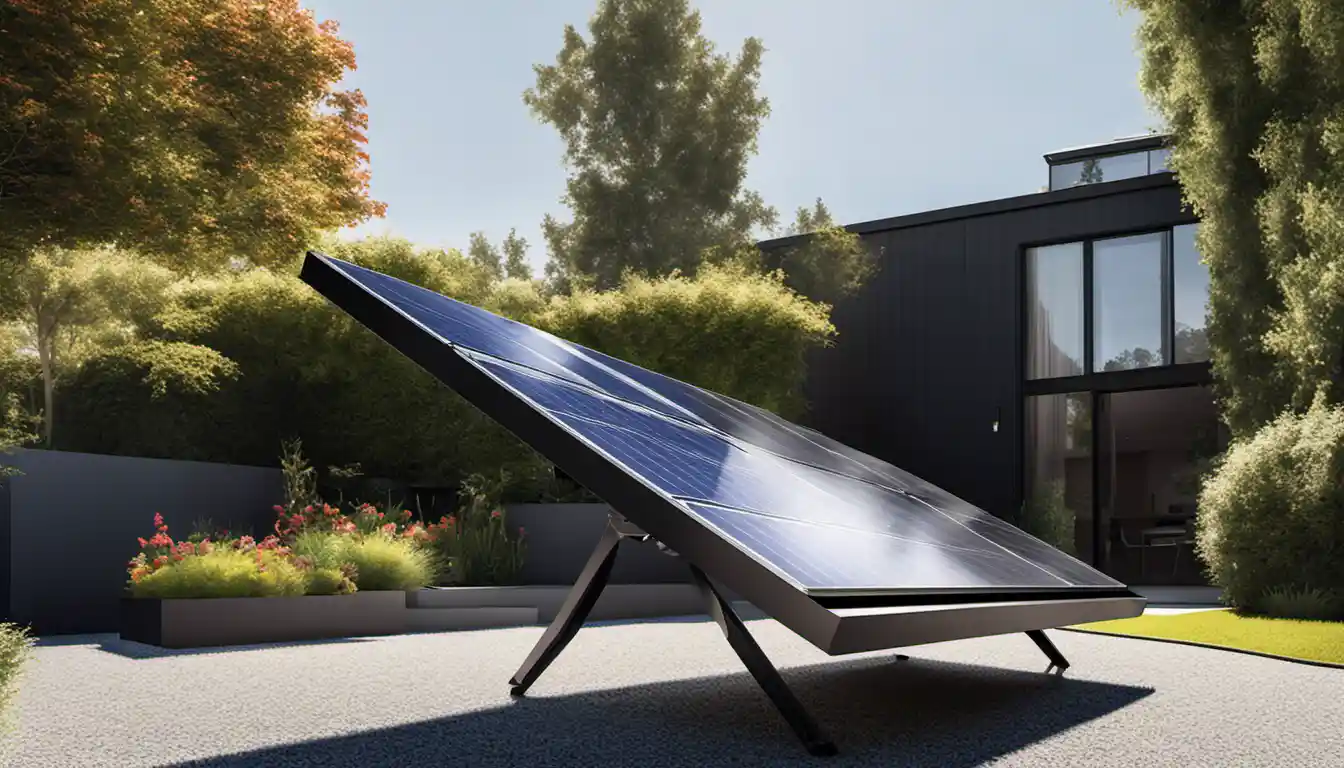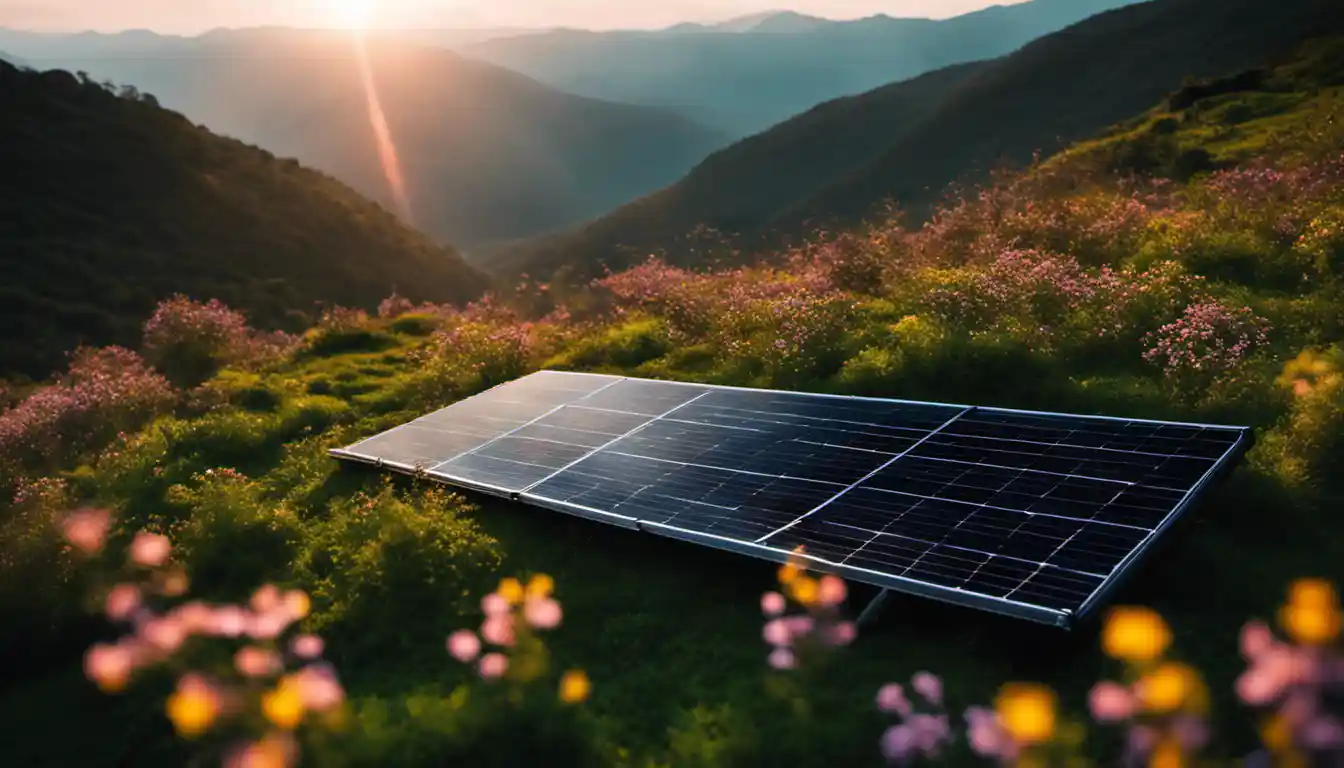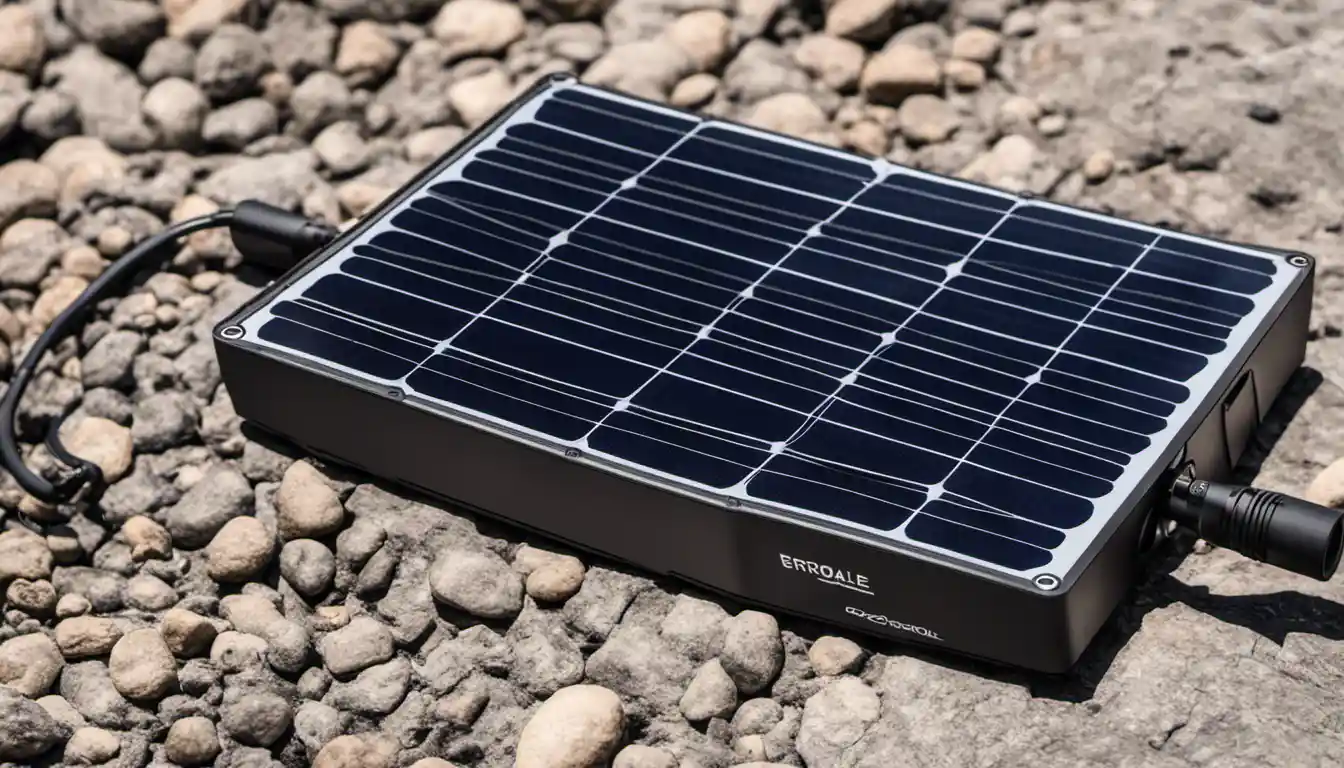Introduction
Portable solar panels can be worth it depending on your needs. They’re a great option for those who travel frequently or live off-the-grid, as they provide a renewable source of energy that’s environmentally friendly. However, their cost-effectiveness hinges on your energy needs, location (amount of sunlight), and the initial investment.
What Are Portable Solar Panels?
Portable solar panels are, quite simply, solar energy systems that you can take with you wherever you go. Unlike conventional solar panels fixed on rooftops or solar farms, these mobile powerhouses tap into the sun’s energy to fuel anything from laptops and lights to entire RVs or cabins in the wild.
A solar panel works by allowing photons, or particles of light, to knock electrons free from atoms, generating a flow of electricity. Known as the photovoltaic effect, this process turns sunlight into usable energy – right at your fingertips.
See also: Portable Solar Panels Are Good (Here’s Why)
Articulating the Pros and Cons of Portable Solar Panels

Wherever there’s light, these little marvels promise power. They’re light, integration-friendly, and don’t need any significant installation. But there’s more to their story.
The Upside of Portable Solar Panels
Portable solar panels offer versatility like no other. Imagine camping off-grid or sailing on the open sea, all while still being connected!
They also possess an admirable weatherproof capability that can stand against nature’s elements. Their robust exterior guards the high-quality solar cells inside, capturing the sun’s light even in overcast conditions.
With overcharge protection, these panels ensure your devices are safe from excessive energy input. Additionally, harnessing the sun’s radiant energy means your utility operations contribute to renewable energy generation, which helps reduce our carbon footprint and conserve the environment for future generations.
Solar kits can also translate into potential utility bill reductions in the long run for those living in sunny locales. Last but not least, they need comparatively lower maintenance costs after the initial purchase.
The Downside of Portable Solar Panels
Of course, the coin’s other side shows some reliability concerns. Portable solar power is severely limited during the winter or in less sunny regions where the sun often plays hide and seek.
In terms of pollution impact, while solar energy is clean, the production of solar panels involves some toxic materials and energy.
Lastly, space requirements can be a limiting factor for those with limited room to accommodate portable panels.
The Lifespan of Portable Solar Panels: How Long Do They Actually Last?

Often posing the question – “how long do portable solar panels last?” is critical in determining if the investment is worth it. While the lifespan depends on the type and quality of the panel, most quality portable solar panels can last between 15 to 25 years. With proper care and maintenance, some even exceed their expected lifetime.
Top Uses for Portable Solar Panels
It’s not just for the free-spirited globetrotters, though. Those who enjoy their creature comforts in their apartment too can benefit, using it as an alternate power source when the blackouts strike. Think of it as your power outage backup – light, heat, and Netflix, irrespective of the power situation outside.
What To Look For When Buying Portable Solar Panels

In your quest to answer, “are portable solar panels worth it?” it’s essential to remember these key considerations. The efficiency of the panel is paramount – it determines how much sunlight is converted into usable energy. Look for panels with a high-efficiency rating, typically above 15%.
Next, consider the size and weight of the panel, especially if you’ll move it frequently. For the budget-conscious, don’t forget to factor in price relative to wattage—more watts mean more power. Lastly, any worthy portable solar panel package will have extras such as USB ports, LCD screens, or carrying handles.
Breaking Down Solar Panel Types
There are three main types of solar panels: Monocrystalline, Polycrystalline, and Thin Film. Each serves a different purpose and comes with its own pros and cons. Mono panels are highly efficient but expensive; Poly panels are less efficient but more affordable and Thin Film panels are the least expensive but also the least efficient and lasting.
Conclusion: Is it worth investing in portable solar panels?
In conclusion, whether or not portable solar panels are worth it hinge on your personal energy needs, available sunlight, and budget. Certainly, for those frequently off-the-grid or looking for a renewable energy source, portable solar panels are a wise and sustainable investment.
In the end, the sun’s potential as a safe, clean energy powerhouse is undeniable – the question is, are you prepared to harness its energy, anytime, anywhere?
After 20 years in the field of solar energy, I can safely say this: Portable solar panels are not just a passing trend; they’re a glimpse into the resilient, sustainable future of energy. Yes, investing in them is a calculated gamble. Still, with the right strategy and mindset, it’s certainly one that has the potential to pay off in the long run.



